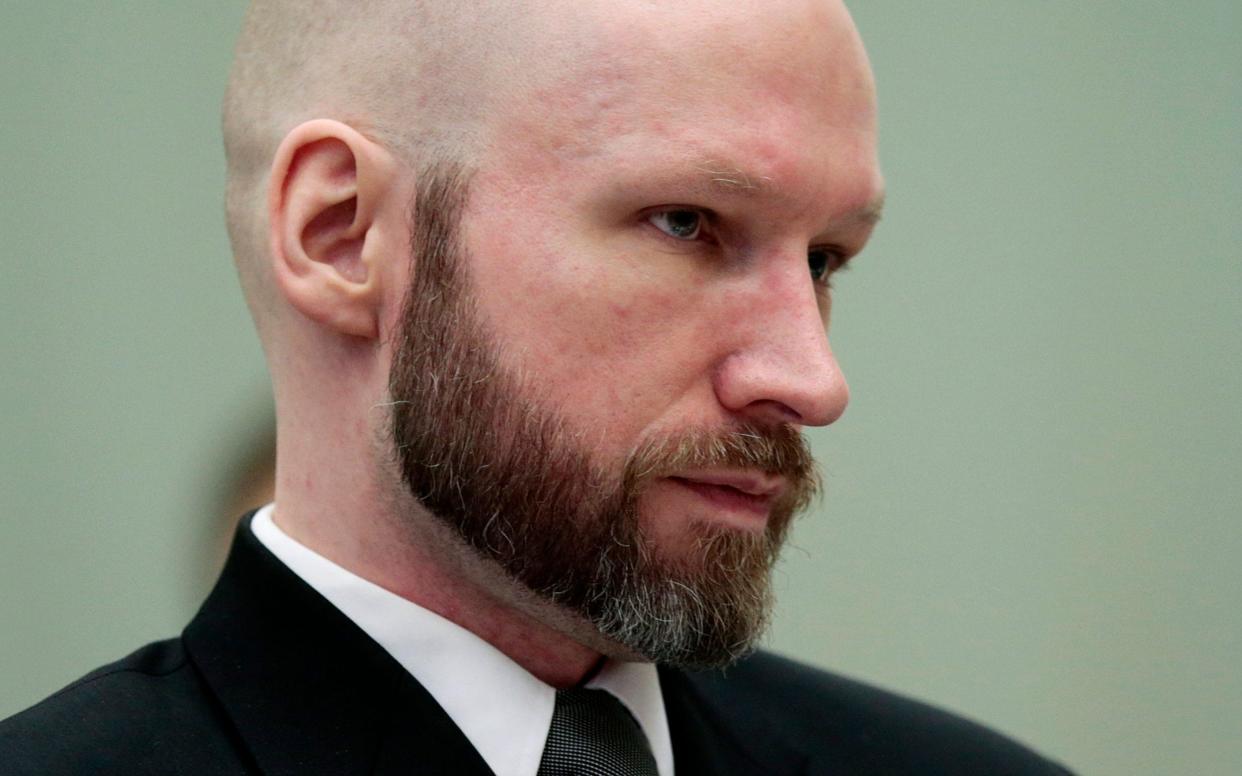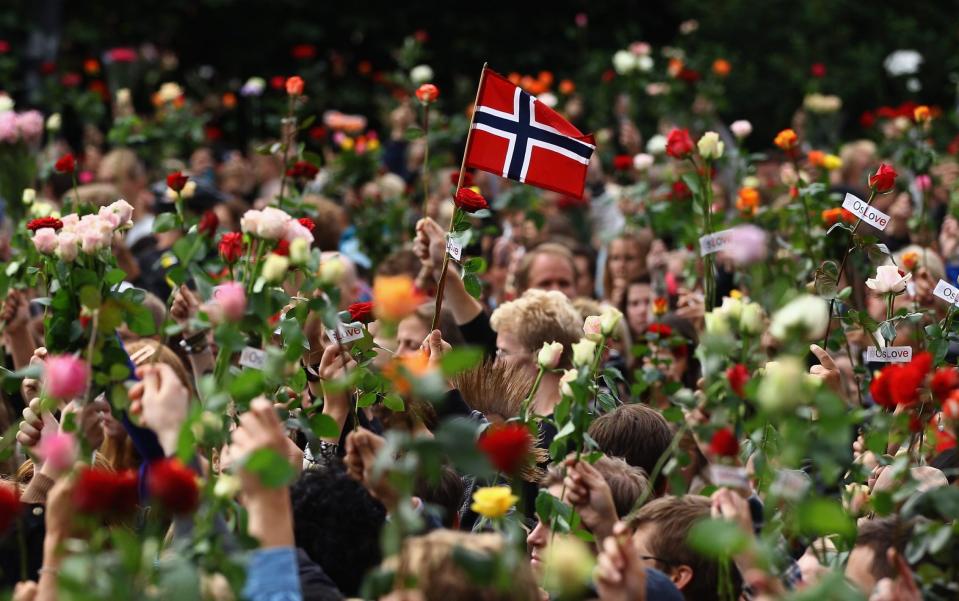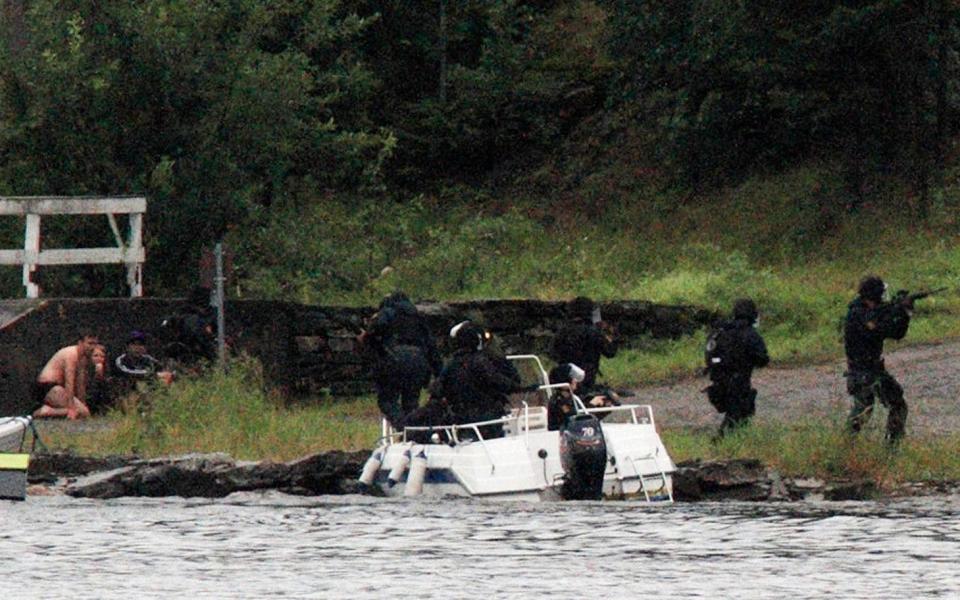Anders Breivik will call Neo-Nazi to his defence in his first parole hearing

Norwegian mass killer Anders Breivik has called the leading Swedish neo-Nazi Par Oberg to testify for him at a parole hearing on Tuesday, his first since being imprisoned ten years ago.
Oberg, from the militant neo-Nazi Nordic Resistance Movement, was last year found guilty of committing hate crimes, after he was recorded on film chanting the Nazi slogan "Sieg Heil!", while disrupting a political festival in 2017.
The 42-year-old mass killer Breivik has now served ten years of the 20-year sentence he was given for his 2011 twin terror attacks, which left 77 dead in the biggest massacre in Norway since the Second World War.
This means he is eligible for parole, so long as he can show he is no longer a danger to society.

Øystein Storrvik, Mr Breivik's defence lawyer, told Norway's TV2 that he would leave it to his client to explain his reasoning for calling Oberg.
"I can only say that he is wanted as a witness, and that he has said he is willing to testify. It will be revealed during the trial why he is there," he said.
In court appearances in 2016 and 2017, Mr Breivik, who now calls himself Fjotolf Hansen, flashed neo-Nazi salutes, which he told the judge were ancient Norse greetings.
According to the prison psychiatrist Randi Rosenqvist, who will give evidence in court, Mr Breivik is unusual in how little remorse he has shown.

Breivik's reemergence in the public eye five years after his last court case will be painful for the friends and relatives of the 77 people he brutally killed, particularly as his parole requests are likely to be renewed every one-and-a-half years for at least the next decade.
"Every time this crops up, it will be a great strain for all those that this happened to," Lisbeth Royneland, whose daughter Synne would have celebrated her 29th birthday on Tuesday, told Norway's state broadcaster NRK.
"I'm convinced he will use it as a platform to spread hateful nonsense," Bjorn Ihler, who survived the attack on an island Labour Party youth camp, told the Telegraph.
Berit Johnsen, the head of research at University College for Norwegian Correctional Service, said that it was "very, very unlikely" that Breivik would get parole.
Special treatment
"He has shown what he is capable of doing, and the only way he can be released is for the court to trust he can live a normal life and not be a danger to anyone."
Assuming his parole request is rejected, he will then be able to appeal the verdict, with the case then continuing for about six months. He will then have one year before he will be able to renew his parole request.
"He will be able to take his case to court about every year and a half," Dr Johnsen said. "People don't like it, but I think they will accept it. It is very important that his imprisonment is legal."
Ms Røyneland, who now leads a support group for victims of the attacks, said that, however difficult she found it, she believed Breivik's case should not be treated differently under the law.
"I do not think those who made the laws envisioned a mass murderer and a terrorist," she told NRK. "But if they had made a special arrangement for him, it would also have been wrong."

